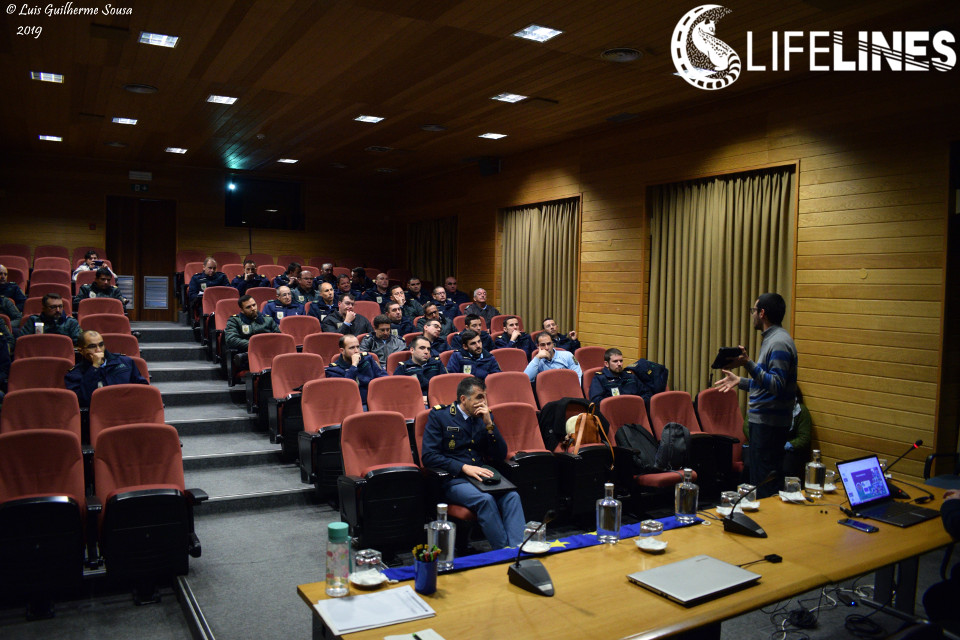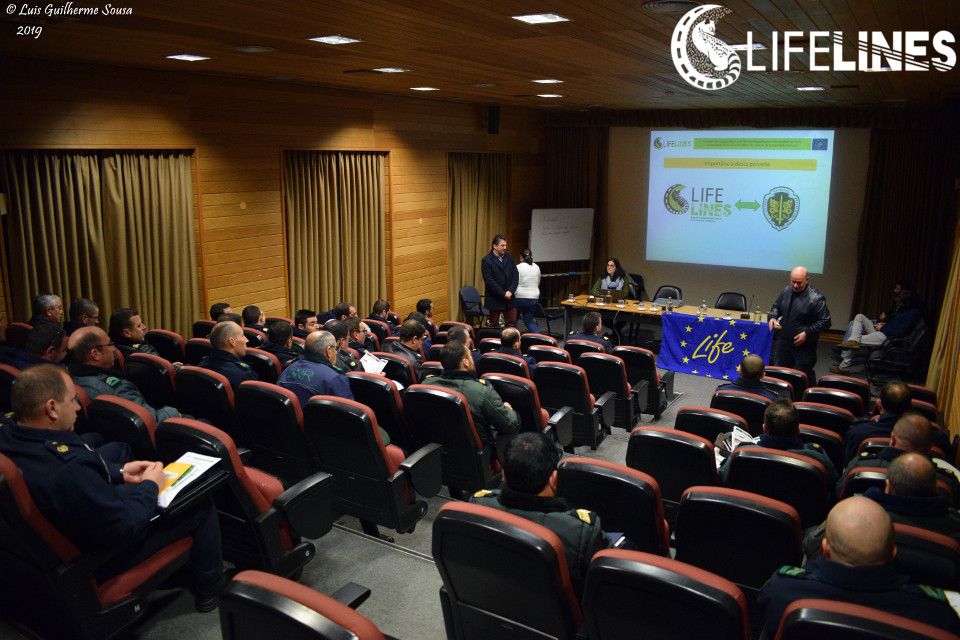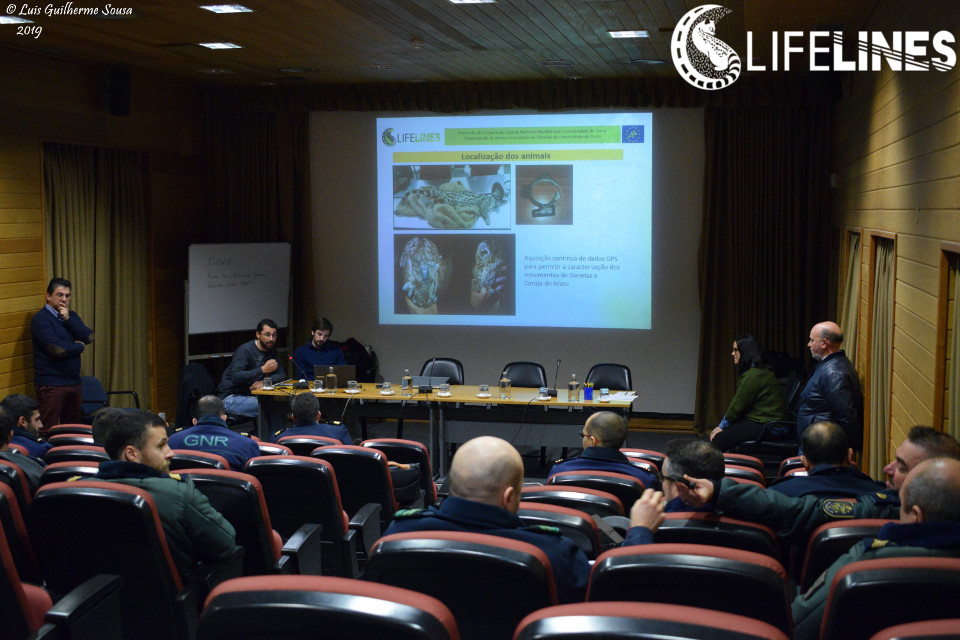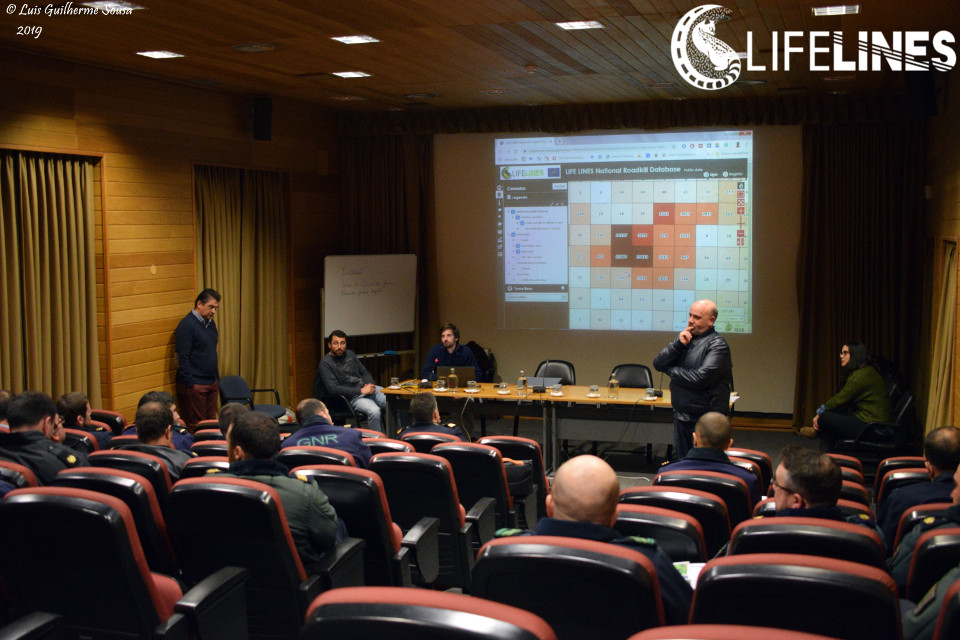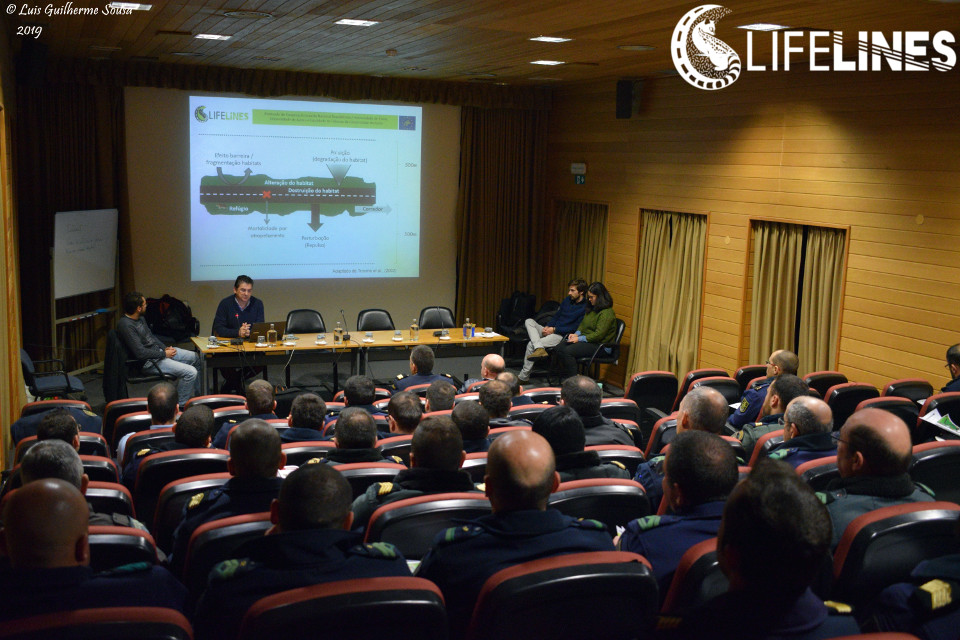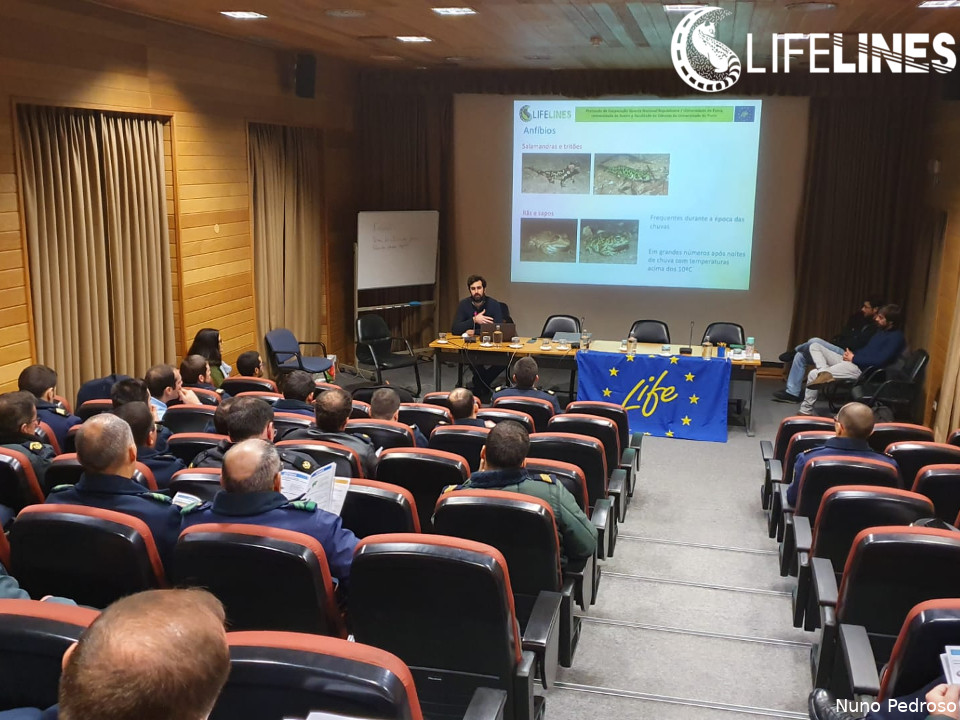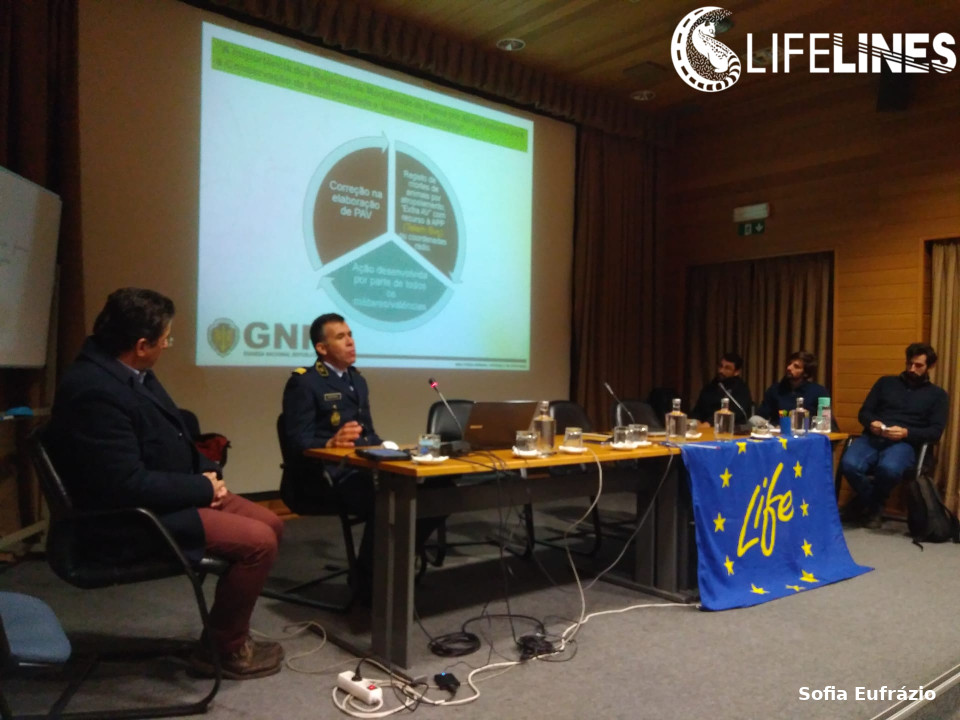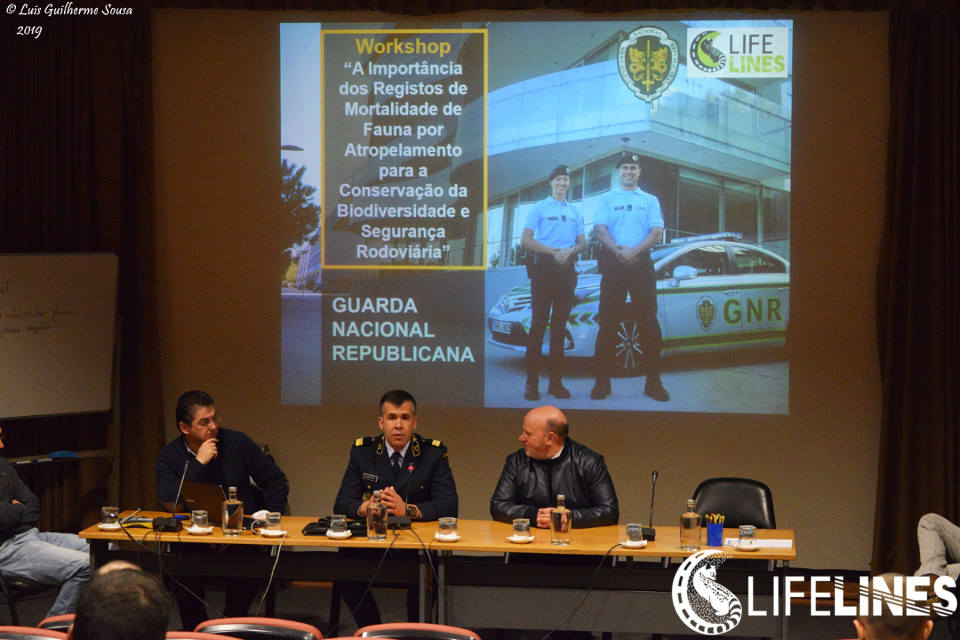Last Thursday, 9th of January, took place the first training session directed to the military of the Republican National Guard (GNR) resulting from the Protocol of collaboration between the University of Évora, University of Aveiro and Faculty of Sciences of the University of Porto.
The collaboration between these entities arose within the scope of the LIFE LINES project – Linear Infrastructure Networks with Ecological Solutions, in order to promote the sharing of information and knowledge between GNR and the educational institutions that are partners of the LIFE LINES project.
In particular, educational institutions have the role of developing a guide for identifying the most commonly road killed species of terrestrial vertebrates for use by the GNR military, and developing training to assist the military in correctly identifying road killed animals. GNR, a collaborating entity of the LIFE LINES project, will make available their information about roadkills in order to join the LIFE LINES National Roadkill Database, which is being coordinated by the University of Évora. These data will thus contribute to the identification of areas of high fauna mortality and contribute to the reduction of this mortality as well as to increase road safety.
In the first training session, the LIFE LINES Project Team at the University of Évora made known to the military the importance that the road kill fauna records have for the conservation of biodiversity and road safety. The guide for wildlife identification, made by the universities was presented and distributed in this training session.
These actions will take place in a first phase in the district of Évora, and are expected to be extended to the rest of the national territory in a second phase.

